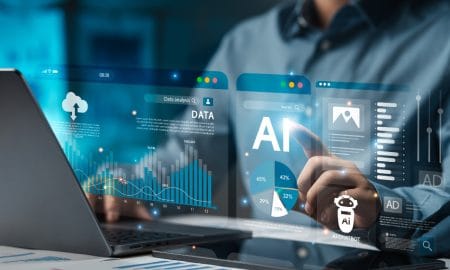Artificial intelligence (AI) has the potential to transform Africa’s economies, unlocking up to $100 billion annually if barriers to adoption are addressed, according to McKinsey’s 2025 report, Leading, Not Lagging: Africa’s Gen AI Opportunity. With 70% of sub-Saharan Africa’s population under 30, the continent’s youthful demographic could become its greatest advantage—but only if education, exposure, and equitable access take center stage.
AI Adoption Gains Momentum but Gaps Remain
The report finds that 40% of African institutions have already begun experimenting with generative AI or deployed significant solutions. However, experts warn that the continent has barely scratched the surface of what is possible. Professor Letlhokwa Mpedi, Vice-Chancellor of the University of Johannesburg, stresses the importance of education and hands-on interaction:
“It’s one thing to talk about AI, but another to demonstrate it. We need to create more opportunities for people to interact with AI and learn.”
Agriculture Leads AI Transformation
AI’s most visible impact is emerging in agriculture, where 70-80% of rural employment in sub-Saharan Africa depends on the sector. Innovations range from:
- Drone-powered crop analysis and video-based yield monitoring
- Mobile-based AI tools in Kenya and Senegal that deliver real-time pricing and market insights directly to smallholder farmers
- Decision-making tools helping farmers time their sales and maximize returns
According to Arthur Goldstuck, CEO of World Wide Worx, Africa’s innovation is driven by need rather than opportunity, making mobile-first AI solutions especially impactful.
AI in Science and Research
Beyond agriculture, AI is accelerating breakthroughs in marine biology, ecology, and environmental science. Professor AJ Smit of the University of the Western Cape highlights how AI-enabled tools now complete ecological assessments in days instead of months, advancing research in areas such as kelp forest mapping, fish enumeration, and underwater biodiversity monitoring.
Bridging the Global AI Divide
Despite these advances, disparities between the Global North and Global South remain significant. Many African researchers lack access to high-end AI models and computing infrastructure available in universities abroad. Addressing this gap, experts argue, requires AI literacy programs, open-access tools, and context-driven solutions tailored for Africa’s unique challenges.
The Path Forward
For Africa to fully capitalize on AI’s promise, three priorities stand out:
- Education & Exposure – Build AI literacy across schools, universities, and communities.
- Practical Integration – Expand opportunities for direct interaction with AI tools and real-world use cases.
- Infrastructure & Inclusion – Ensure equitable access to AI resources, particularly for youth, women, and underserved populations.
Goldstuck captures the continent’s innovation spirit:
“In Silicon Valley, innovation is driven by opportunity; across Africa, innovation is driven by need.”
With the right investments in skills, access, and scale, AI could become a game-changing force for Africa’s economy, enabling solutions built by Africans, for Africans.






